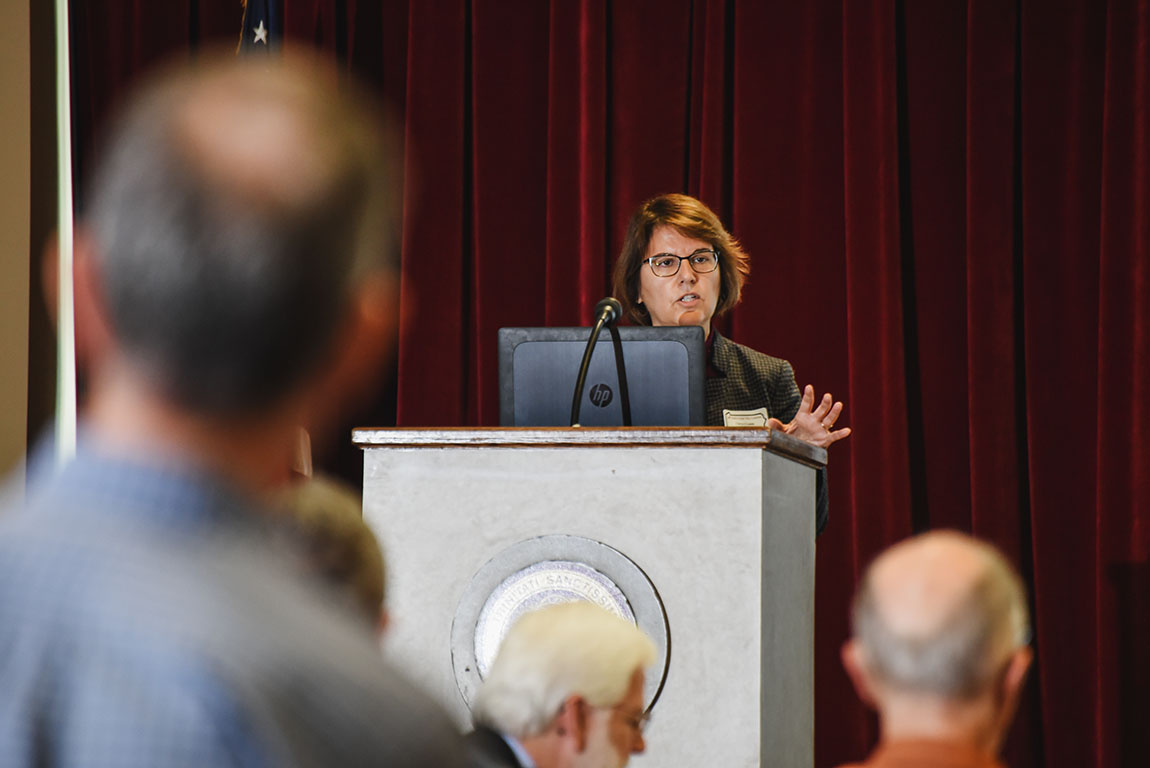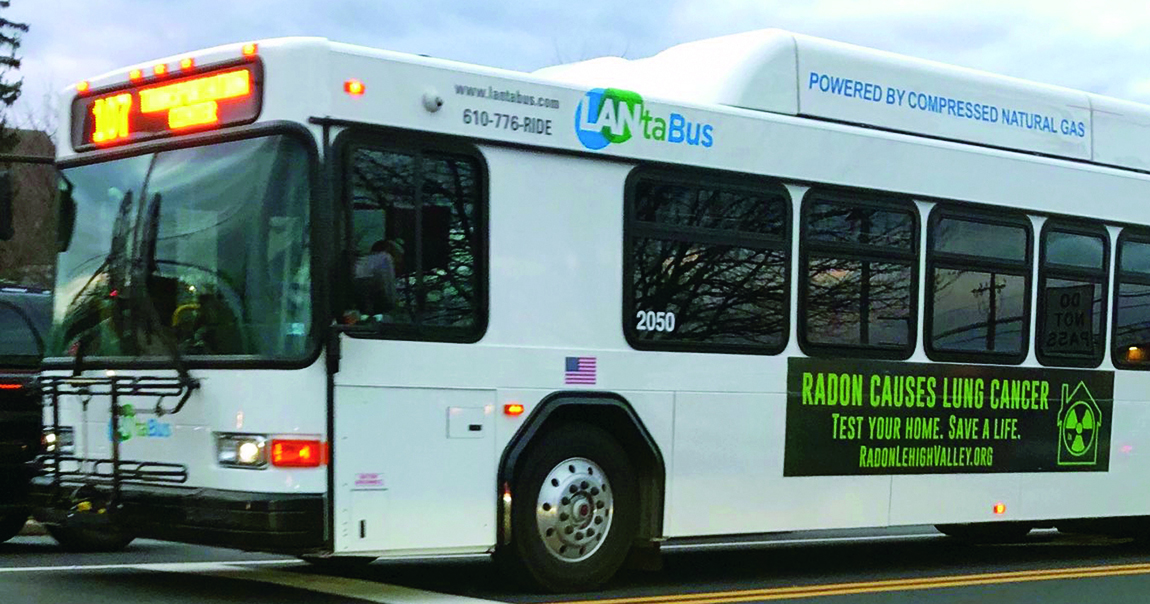Impact Now: $25,000 Environmental Protection Agency Grant Supports Public Health Professor’s Radon Awareness and Remediation Efforts
Radon, a colorless, odorless gas that’s the leading cause of lung cancer behind smoking, is prevalent in Pennsylvania buildings. Associate Professor and Director of Public Health Chrysan Cronin is the first to be awarded an EPA grant that pays for mitigation.By: Meghan Kita Monday, January 15, 2024 02:57 PM
 Associate Professor and Director of Public Health Chrysan Cronin teaching last fall. Photos by Kristi Morris, Littlewing Studio
Associate Professor and Director of Public Health Chrysan Cronin teaching last fall. Photos by Kristi Morris, Littlewing StudioAssociate Professor and Director of Public Health Chrysan Cronin began researching radon in 2017, when she collaborated with students on focus groups to determine how to better educate Allentown residents about the radioactive gas that can cause lung cancer when it reaches high indoor concentrations. (Radon is released when uranium decays, and uranium is prevalent in the ground throughout much of Pennsylvania due to the state’s geology.) Since then, she and students have launched a website and an advertising campaign and hosted a radon symposium on campus.

Cronin speaking at the 2019 symposium held on campus
During a Spring 2023 sabbatical, Cronin wrote a proposal for a $25,000 grant from the Environmental Protection Agency to support continued targeted advertising and to pay for remediation in some of the city’s rental properties. Last June, the EPA offered the grant with a caveat: They would pay for testing in the rental properties but not remediation.
“So, I declined the award. I said, ‘That’s like saying, ‘Well, we’re going to do a mammogram, and then we’re going to let you know what we find, and good luck with that,’” recalls Cronin, who notes that landlords are not legally required to test for or remediate dangerously high levels of radon. “When I put it like that, they came back and said, ‘Why don’t you use part of the money to try this out?’ This is novel. They’ve never funded a mitigation program before.”
“I declined the award [because it initially wouldn’t pay for mitigation]. I said, ‘That’s like saying, ‘Well, we’re going to do a mammogram, and then we’re going to let you know what we find, and good luck with that.’ When I put it like that, [the EPA] came back and said, ‘Why don’t you use part of the money to try this out?’ This is novel. They’ve never funded a mitigation program before.”
Windows need to be closed in order to accurately test, so the mitigation program began when the weather cooled in the fall. Cronin has partnered with a local landlord to test her buildings, but coordinating with the tenants, the property manager and the remediation specialist has proven logistically challenging. Still, the first property is scheduled for mitigation this month, and the grant provides funding for four more properties to be remediated by June.
The grant is simultaneously funding an online advertising campaign targeting the zip codes where Cronin and her students found the lowest levels of radon awareness as well as physical ads within the Lehigh and Northampton Transportation Authority bus system. Cronin and her students also found less awareness among residents identifying as Hispanic, so all ads are running in English and Spanish. The ads drive viewers to radonlehighvalley.org, a site students built in 2018 that public health major Esther Klinger ’25 recently updated. Since ad campaigns began this fall, more than 350 people have requested free radon test kits.

January is National Radon Action Month, so Cronin has been spreading the word via interviews on LehighValleyNews.com and WHYY. While her advocacy is making an impact, she’s frustrated that there are no legal protections for Pennsylvania residents — previous attempts at state-level legislation got little traction.
“It's not unprecedented. There are other states that require [testing and mitigation],” she says. “But we have the biggest problem in the United States right here in Pennsylvania.”
